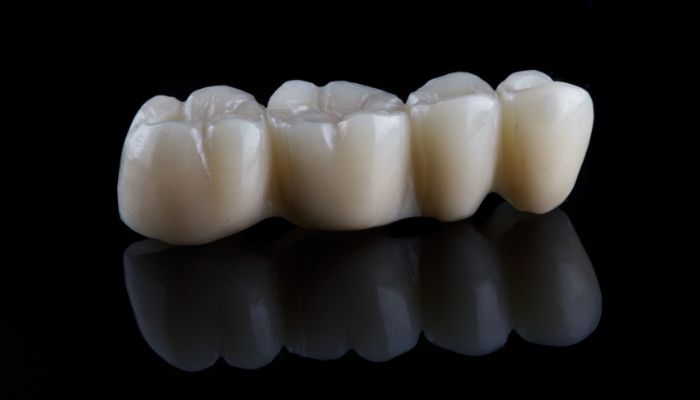A dental crown is a common restorative treatment in modern dentistry, designed to protect and restore damaged teeth. Whether due to decay, trauma, or cosmetic reasons, dental crowns provide a solution that strengthens teeth while improving their appearance. In this article, we will explore what a dental crown is, its purpose, and the benefits it offers to patients.
What is a Dental Crown?
A dental crown is a cap placed over a damaged or weakened tooth to restore its shape, size, strength, and appearance. Crowns are custom-made to fit over an individual’s tooth, mimicking the natural look and feel of a real tooth. Crowns can be made from various materials, including porcelain, ceramic, metal, or a combination of these.
Dentists typically recommend crowns for patients whose teeth are too damaged for a filling but not in need of extraction. Dental crowns cover the entire visible portion of the tooth above the gum line, acting as a protective shield to prevent further damage.
Purpose of a Dental Crown
Crowns serve several essential purposes in dentistry, ranging from protection to cosmetic enhancement. Here’s a breakdown of their key roles:
1. Restoring a Damaged Tooth
One of the primary purposes of a crown is to restore the strength and structure of a tooth that has been damaged due to decay, trauma, or wear. Teeth with large cavities or those that have undergone a root canal may become fragile, making them prone to cracking. A crown reinforces the tooth, enabling it to function normally again.
2. Protecting a Weak Tooth
When a tooth is weak or worn down, it may not withstand the pressure of biting and chewing. A crown acts as a protective layer, absorbing the forces and safeguarding the natural tooth underneath from further damage.
3. Improving Aesthetic Appearance
Crowns are also used for cosmetic purposes, such as covering discolored or misshapen teeth. Porcelain or ceramic crowns are often preferred for their natural appearance, blending seamlessly with the surrounding teeth to create a more aesthetically pleasing smile.
4. Supporting Dental Bridges
A dental crown is commonly used to support a dental bridge, which replaces missing teeth. Crowns are placed on the teeth adjacent to the gap, anchoring the bridge in place and ensuring stability.
5. Covering a Dental Implant
For patients who have lost a tooth, a dental crown can be placed on top of a dental implant. The implant acts as a root substitute, and the crown provides the visible portion of the tooth for proper function and appearance.
Types of Dental Crowns
There are several types of dental crowns, each with its own advantages:
1. Porcelain or Ceramic Crowns
These crowns are popular for their natural appearance and are ideal for front teeth. Porcelain crowns are biocompatible, meaning they do not cause allergic reactions, making them a safe option for most patients.
2. Metal Crowns
Metal crowns, usually made of gold, platinum, or alloys, are known for their durability and strength. They are often used on molars where the bite pressure is greatest.
3. Porcelain-Fused-to-Metal (PFM) Crowns
This type combines the aesthetic benefits of porcelain with the strength of metal. While it provides a natural appearance, the metal underneath can sometimes be visible along the gum line, making it less ideal for front teeth.
4. Zirconia Crowns
Zirconia is a relatively new material in dentistry, offering both strength and aesthetics. Zirconia crowns are highly durable and can withstand heavy chewing forces, making them suitable for both front and back teeth.
Benefits of Dental Crowns
Dental crowns offer numerous benefits that go beyond simple tooth restoration. Here are the top advantages:
1. Protection from Further Damage
Crowns provide a protective covering that helps prevent further decay, wear, or fractures, especially for teeth that are already weakened.
2. Improved Appearance
Crowns can significantly improve the appearance of damaged or discolored teeth, resulting in a more attractive smile. Modern materials like porcelain and zirconia are designed to match the natural color and translucency of teeth, offering a seamless look.
3. Durability
Crowns, particularly those made from metal or zirconia, are incredibly durable and can last many years with proper care. They can withstand the normal forces of biting and chewing, making them a long-lasting solution.
4. Enhanced Functionality
By restoring the shape and size of a tooth, crowns help patients regain full function, allowing them to chew and speak normally. This is especially important for back teeth, which play a crucial role in grinding food.
5. Prevent Tooth Loss
In some cases, crowns can prevent the need for tooth extraction by providing essential support and protection to a severely damaged tooth.
Conclusion
A dental crown is an effective and versatile solution for restoring and protecting damaged teeth. Whether you need a crown to improve functionality or enhance your smile, the benefits of this treatment are substantial. With different materials available, patients can choose the option that best suits their needs, ensuring both aesthetic and practical advantages. If you are experiencing tooth damage or decay, consult your dentist to see if a crown could be the right option for you.
FAQ
1. How long do dental crowns last?
Dental crowns can last anywhere from 5 to 15 years or more, depending on the material used and how well you care for them.
2. Are dental crowns painful to install?
The procedure is typically painless, as dentists use local anesthesia to numb the area. Some sensitivity may occur afterward, but it is usually mild.
3. Can a dental crown fall off?
While rare, crowns can become loose or fall off due to adhesive failure or damage. If this happens, visit your dentist promptly to have it re-cemented or replaced.
4. Are crowns covered by insurance?
Dental insurance may cover a portion of the cost of a crown, particularly if it is necessary for restorative purposes. It’s best to check with your provider for specific coverage details.


